
"Canadian baritone saxophonist Charles Papasoff has, with this recording, pulled off the heretofore unimaginable: pulled together a sextet comprised strictly of baritone players from Europe and North America and commissioned each member...
Out of Stock
Quantity in Basket: None
Log In to use our Wish List
Shipping Weight: 5.00 units
Sample The Album:
Bo Van der Werf-baritone saxophone
Charles Papasoff-baritone saxophone
Christian Gavilett-baritone saxophone
David Mott-baritone saxophone
Hamiet Bluiett-baritone saxophone
Jean Derome-baritone saxophone
Click an artist name above to see in-stock items for that artist.
Label: Les Disques Victo
Catalog ID: VICCD038
Squidco Product Code: 23976
Format: CD
Condition: New
Released: 1996
Country: Canada
Packaging: Jewel Case
Recorded on 18 May 1995 live at the 12th Festival International de Musique Actuelle de Victoriaville
"Canadian baritone saxophonist Charles Papasoff has, with this recording, pulled off the heretofore unimaginable: pulled together a sextet comprised strictly of baritone players from Europe and North America and commissioned each member to bring some new chart to the table that would showcase the seemingly limitless range of expression the baritone holds -- which goes against the historical jazz grain where the horn has been either ignored or relegated to the background shadows of a bandstand with very few exceptions. This conspiracy -- of a group working in concert with one another -- was indeed performed that way at the Victoriaville Festival in 1995. The set starts off with two Papasoff contributions, one the long intro to "Mouvements," which consists of five sections: a solo, ensemble rhythmic workout, a harmonically diverse ballad section, a seemingly improvised swing workout, and then a closing theme -- all of which are Ellingtonian in their magnanimous musicality. Next isChristian Gavillet's "Verdi," an extrapolation of various themes by the late Italian composer. But this is no neo-classicist foray for baritone saxophonists. This is a dark, shadowy realm where tonalities and polyphonal calls and responses are woven into a fabric that suggests unbroken lines of minor-key elegance and grace that is nearly operatic before it breaks into a funky roar. The most tantalizing and delicious thing here, however, is Hamiett Bluiett and Papasoff's re-arrangement of Charles Mingus' "Pithecanthropus Erectus." Here the baritone choir stomps, swings, and shouts its way into jazz heaven. Bluiett's contribution is the orchestral feel of the piece, sounding more like the Mingus big band than a saxophone choir approaching the gospel-tinged theme, and Papasoff's is in his modulation of the sextet in such a way that the entire composition is covered harmonically from the first bar. This is beauty that is almost unbearable in its intensity and guttural raw swingingglory."-Thom Jurek, All Music
Artist Biographies
• Show Bio for Bo Van der Werf "Bo Van der Werf (°1969) graduates from the Conservatory of Music in Amsterdam. Early on, he works out a dual career path: as sideman on the one hand and as leader of his own projects on the other. So, he is involved right from the start when the Brussels Jazz Orchestra is founded and still has his permanent spot in the band. In addition, he performs with several other ensembles, including Septych (Bram De Looze's septet), Lidlboj (with pianist-keyboarder Jozef Dumoulin), Dragons (French saxophonist Alexandra Grimal's quintet), Workshop (with French saxophonist Stéphane Payen), the Sylvain Cathala Septet and MikMâäk. He also composes music for documentaries and dance performances and there is the collaboration with contemporary music ensemble Ictus. He plays on the first Aka Moon albums as well. He develops his personal vision with his band Octurn, which just like the BJO sees the light of day in the Brussels jazz club Sounds. Here he focuses on deepening principles in line with Olivier Messiaen's ideas and contemporary classical music, and linking all of this to jazz idioms and improvisation. Quite exceptional in that respect are the recordings with the monks of the Gyuto Monastery where this vision rises to a crescendo. During the upcoming concerts in the Sounds, his quartet Songbook of Changes takes centre-stage with Fabian Fiorini, Jozef Dumoulin and Dré Pallemaerts within its ranks." ^ Hide Bio for Bo Van der Werf • Show Bio for Hamiet Bluiett "Hamiet Bluiett (born September 16, 1940, Brooklyn, or Lovejoy, Illinois; surname pronounced BLUE-ett) is an American jazz saxophonist, clarinetist, and composer. His primary instrument is the baritone saxophone, and he is considered one of the finest living players of this instrument. A member of the World Saxophone Quartet, he also plays (and records with) the bass saxophone, E-flat alto clarinet, E-flat contra-alto clarinet, and wooden flute. Bluiett was born just north of East St. Louis in Brooklyn, Illinois (also known as Lovejoy), a predominantly African-American village that had been founded as a free black refuge community in the 1830s, and which later became America's first majority-black town. As a child, he studied piano, trumpet, and clarinet, but was attracted most strongly to the baritone saxophone from the age of ten. He began his musical career by playing the clarinet for barrelhouse dances in Brooklyn, Illinois, before joining the Navy band in 1961. He attended Southern Illinois University Carbondale. In his mid-twenties, Bluiett heard Harry Carney (the baritone player in the Duke Ellington band) play in a live concert in Boston, which also made a strong impression on the young Bluiett, providing an example of a baritone saxophonist who played as soloist rather than accompanist. Following his time in the Navy, he returned to the St. Louis area in the mid-1960s. In the late 1960s Bluiett co-founded the Black Artists' Group (BAG) of St. Louis, Missouri, a collective dedicated to fostering creative work in theater, visual arts, dance, poetry, film, and music. He led the BAG big band during 1968 and 1969. Bluiett moved to New York City in the fall of 1969, where he joined the Charles Mingus Quintet and the Sam Rivers large ensemble. In 1976 he co-founded the World Saxophone Quartet along with two other Black Artists' Group members, Julius Hemphill and Oliver Lake, as well as multi-reedist David Murray. He has remained a champion of the somewhat unwieldy baritone saxophone, organizing large groups of baritone saxophones. Since the 1990s Bluiett has led a virtuosic quartet, the Bluiett Baritone Nation, made up entirely of baritone saxophones, with drum set accompaniment. In the 1980s, he also founded the Clarinet Family, a group of eight clarinetists playing clarinets of various sizes ranging from E-flat soprano to contrabass. Bluiett has also worked with Sam Rivers, Babatunde Olatunji, Abdullah Ibrahim, Stevie Wonder, and Marvin Gaye. He returned to his hometown of Brooklyn, Illinois, in 2002 but moved back to New York City in 2012. He currently performs at gigs, including the New Haven Jazz Festival on August 22, 2009. He performed with students from Neighborhood Music School in New Haven, CT. The group were known as Hamiet Bluiett and the Improvisational Youth Orchestra." ^ Hide Bio for Hamiet Bluiett • Show Bio for Jean Derome "Jean Derome. Born Montréal, Québec, 1955. esidence: Montréal, Québec. Composer, Performer (saxophones (alto, baritone, soprano), flutes (flute, bass flute, piccolo, alto flute, recorders), keyboards, small wind instruments (ocarinas, jew's harp, game calls, toys...), percussion, invented instruments, voice) One of the most active and eclectic musicians on the Canadian creative music scene, Jean Derome has managed to earn the recognition of a larger public, a rare feat in that field. Thanks to his large-scale musique actuelle projects, his compositions, his work as an improviser, his jazz groups and his music for the screen and the stage, Derome ranks as a major creative force, in Québec and abroad. He is experienced and innovative on both saxophone and flute, and his unique writing style cannot be mistaken for anyone else's. Sensitive and powerful, his music often features a funny strike that makes its complex nature more inviting. Ever since Nébu (one of Québec's first avant-garde jazz groups) in the early '70s, Derome has been consistently renewing and diversifying his approach of composition. He impressed audience and critics first with the flute, then with the saxophone, as a lead character in the musique actuelle underground. He took part to the various artists' collectives looking for new ways to express themselves freely, without esthetic or social constraints, including the Ensemble de musique improvisée de Montréal. Later, in the early '80s, he co-founded Ambiances Magnétiques, a collective and record label that raised his profile at home and introduced his name to the outside world. Among his numerous projects, let us mention the duos Les Granules, Nous perçons les oreilles and Plinc! Plonc!, the dynamic group Jean Derome et les Dangereux Zhoms, and the large-scale projects Confitures de gagaku, Je me souviens - Hommage à Georges Perec and Canot-camping. Most of these projects are based on a unique form of synergy between composition, structured improvisation and genuine creative madness, all this articulated with unmatched playfulness. In 1992, Derome became the second artist to be presented with the Freddie Stone Award (bassist Lisle Ellis was the first). Besides improvising on a regular basis with Ambiances Magnétiques' members and appearing in their projects, Derome has also shared the stage with several musicians of international stature, among others Fred Frith, Lars Hollmer, Louis Sclavis and Han Bennink. He performs regularly all over Canada, in the US and in Europe. He received a Prix Opus in 2001 for his exposure abroad. Lately, jazz circles have been praising his undisputable qualities as a jazzman, thanks to the Thelonious Monk tribute project Évidence, the Normand Guilbeault Ensemble (whose Mingus Erectus CD is devoted to Charles Mingus' music), and the much-lauded Derome Guilbeault Tanguay Trio. Although Jean Derome writes tirelessly for his own projects, he is much in demand in the fields of film, theatre and dance. A short list of this side of his work would have to include his numerous scores for the National Film Board of Canada (NFB), especially for films by John Walker, Jacques Leduc, Fernand Bélanger and animated films by Pierre Hébert, Michèle Cournoyer and Jean Detheux; his incidental music for Théâtre UBU, Théâtre de Quat'Sous and Théâtre du Nouveau Monde; not forgetting his work with several top choreographers, including Louise Bédard, Andrew de Lotbinière Harwood, Daniel Soulières and Ginette Laurin. Other music ensembles have commissioned works from him, including Tuyo, Bradyworks, the Hard Rubber Orchestra from Vancouver and Fanfare Pourpour. Incidentally, Derome is the musical director of the latter. Over thirty years of music and 70 record credits later, Jean Derome still has sleeves bursting with tricks." ^ Hide Bio for Jean Derome
12/18/2024
Have a better biography or biography source? Please Contact Us so that we can update this biography.
12/18/2024
Have a better biography or biography source? Please Contact Us so that we can update this biography.
12/18/2024
Have a better biography or biography source? Please Contact Us so that we can update this biography.
Track Listing:
1. Mouvements 17:03
2. L' Espoir De Ne Pas Perdre Espoir 3:26
3. 1st Mouvement 5:31
4. 2nd Mouvementloose Cannons 1:01
5. 3rd Mouvement [Vrsion Courte] 11:08
6. Verdi 8:48
7. God's Clothes For Shaman Bobbi 5:07
8. Pithecantropus Erectus 4:45
May 2017
Victo
Improvised Music
Search for other titles on the label:
Les Disques Victo.



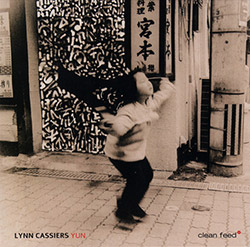
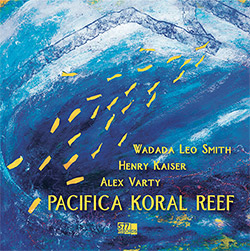



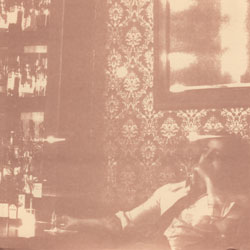
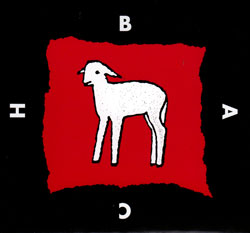
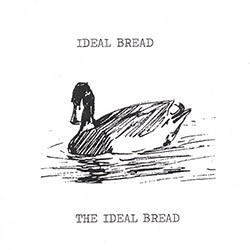
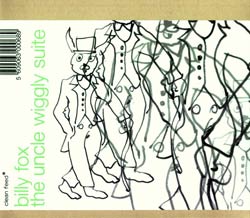
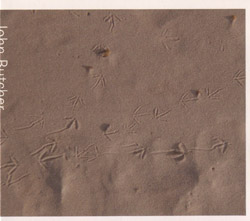

![Taylor, Cecil Unit (w/ Lyons / Silva / Cooper / Murray): Live At Fat Tuesdays 1980 - First Visit Archive [CD + POSTCARDS]](https://www.teuthida.com/productImages/misc4/34610.jpg)

![Schindler, Udo / Paul Rogers feat. Eric Zwang: Ephemeral Locations [2 CDs]](https://www.teuthida.com/productImages/misc4/35186.jpg)
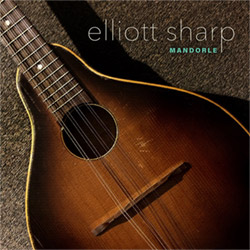

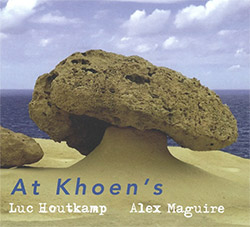
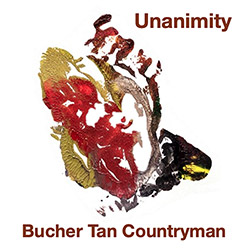


![Moth Bucket (Sims / Searfoss / Dorsey): Vagary Suite [CASSETTE + DOWNLOAD]](https://www.teuthida.com/productImages/misc4/35571.jpg)
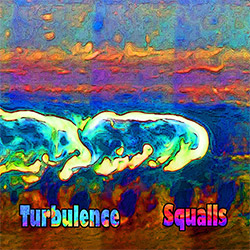
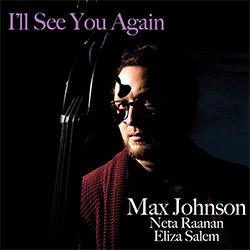

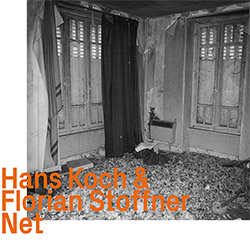
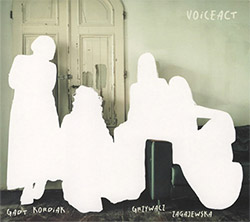




![Weirs and Magic Tuber Stringband : The Crozet Tunnel [CASSETTE + DOWNLOAD]](https://www.teuthida.com/productImages/misc4/35570.jpg)
![Attias, Michael (Attias / Leibson / Pavolka / Ferber / Hoffman): Quartet Music Vol. I: LuMiSong / Kardamon Fall [2 CDs]](https://www.teuthida.com/productImages/misc4/35531.jpg)



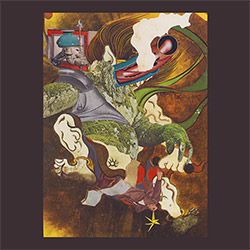

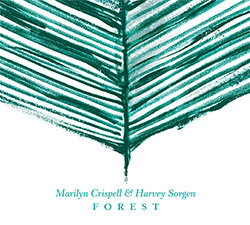

![Abcess Grenk: Erguss Von Licht [CASSETTE w/ DOWNLOAD]](https://www.teuthida.com/productImages/misc4/35560.jpg)
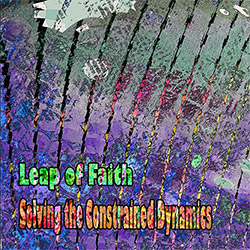
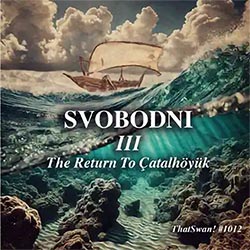
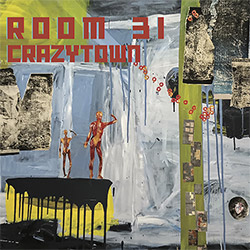

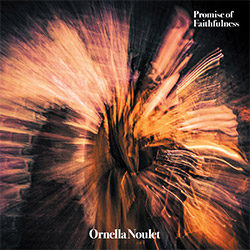

![Mezei, Szilard Tul A Tiszan Innen Ensemble: Reveszem [2 CDs]](https://www.teuthida.com/productImages/misc4/35499.jpg)

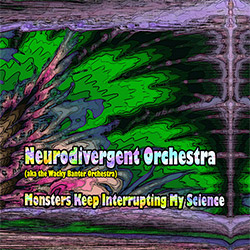

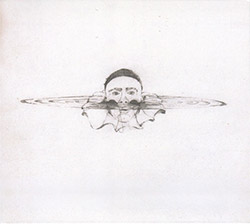
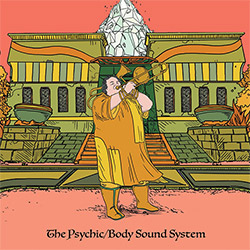
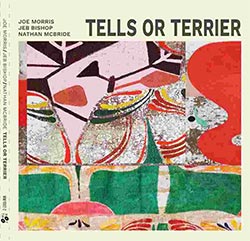
![Gush (Gustafsson / Sandell / Strid) + Guests: Gush 30 - Krakow 2018 [3 CD BOX SET]](https://www.teuthida.com/productImages/misc4/35526.jpg)



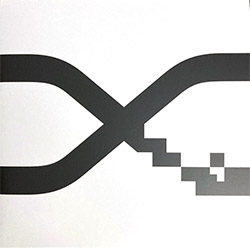
![Alva Noto: Xerrox Vol. 5 [VINYL 2 LPs]](https://www.teuthida.com/productImages/misc4/35359.jpg)
![Weston, Matt: Communism Has Appeared On The Scene [VINYL 2 LPs]](https://www.teuthida.com/productImages/misc4/35546.jpg)

![Jeck, Philip: rpm [2 CDs]](https://www.teuthida.com/productImages/misc4/35455.jpg)






![DNS: Taking Big Bites Of The Khandas Three Cafes Deep [2 CDs]](https://www.teuthida.com/productImages/misc4/35334.jpg)




![Cleaver, Gerald: The Process [VINYL]](https://www.teuthida.com/productImages/misc4/34966.jpg)




![Alva Noto: HYbr:ID II [VINYL 2 LPs]](https://www.teuthida.com/productImages/misc4/35201.jpg)

![Baron, Derek / Luke Martin: Distinct and Concealed [CASSETTE + DOWNLOAD]](https://www.teuthida.com/productImages/misc4/35079.jpg)

![Lonsdale, Eden: Dawnings [2 CDs]](https://www.teuthida.com/productImages/misc4/35480.jpg)







![Sanna, Claudio: Compositori Sardi Contemporanei II [2 CDs]](https://www.teuthida.com/productImages/misc4/35317.jpg)







![Zurria, Manuel: Fame di Vento [3 CDs]](https://www.teuthida.com/productImages/misc4/35167.jpg)

![Granberg, Magnus / Nattens Inbrott / Skogen: Holde Traume, Kehret Wieder! [2 CDs]](https://www.teuthida.com/productImages/misc4/35038.jpg)
![Frey, Jurg: Outermost Melodie [2 CDs]](https://www.teuthida.com/productImages/misc4/35039.jpg)

![Pavone, Jessica: Reverse Bloom [VINYL]](https://www.teuthida.com/productImages/misc4/34895.jpg)




![Modney (Modney / Wooley / Gentile / Roberts / Pluta / Symthe / ...): Ascending Primes [2 CDs]](https://www.teuthida.com/productImages/misc4/34852.jpg)



![Elephant9 : Mythical River [VINYL]](https://www.teuthida.com/productImages/misc4/34624.jpg)



![Elephant9 with Terje Rypdal: Catching Fire [VINYL 2 LPs]](https://www.teuthida.com/productImages/misc4/35355.jpg)
![Deerlady (Obomsawin, Mali / Magdalena Abrego): Greatest Hits [VINYL]](https://www.teuthida.com/productImages/misc4/34876.jpg)




![Haino, Keiji: Black Blues [2 CDs]](https://www.teuthida.com/productImages/misc4/35109.jpg)



![Surplus 1980: Illusion of Consistency [CD]](https://www.teuthida.com/productImages/misc4/35069.jpg)
![Staiano, Moe: Away Towards the Light [VINYL + DOWNLOAD]](https://www.teuthida.com/productImages/misc4/35037.jpg)



![Caveira (Gomes / Sousa / Abras / Ferrandini): Ficar Vivo [VINYL]](https://www.teuthida.com/productImages/misc4/34643.jpg)
![Gregg, J. J. / David Van Auken: Lunar Prairie [CD w/ DOWNLOAD]](https://www.teuthida.com/productImages/misc4/34611.jpg)

![Coultrain: Mundus [VINYL]](https://www.teuthida.com/productImages/misc4/32439.jpg)
![Mattin: Songbook #6 [VINYL]](https://www.teuthida.com/productImages/misc4/27317.jpg)
![Punkappella: Wake Up [7-inch VINYL]](https://www.teuthida.com/productImages/misc4/17519.jpg)
![Residents, The: WARNING: UNiNC.: Live And Experimental Recordings 1971-1972 [VINYL 2 LPs]](https://www.teuthida.com/productImages/misc4/31521.jpg)
![Coultrain: Phantasmagoria [VINYL]](https://www.teuthida.com/productImages/misc4/30142.jpg)
![Lennon, Sean Ono: Asterisms [VINYL]](https://www.teuthida.com/productImages/misc4/34517.jpg)
![Coley, Byron: Dating Tips for Touring Bands [VINYL]](https://www.teuthida.com/productImages/misc4/17906.jpg)

![Lost Kisses: My Life is Sad & Funny [DVD]](https://www.teuthida.com/productImages/misc4/lostKissesDVD.jpg)